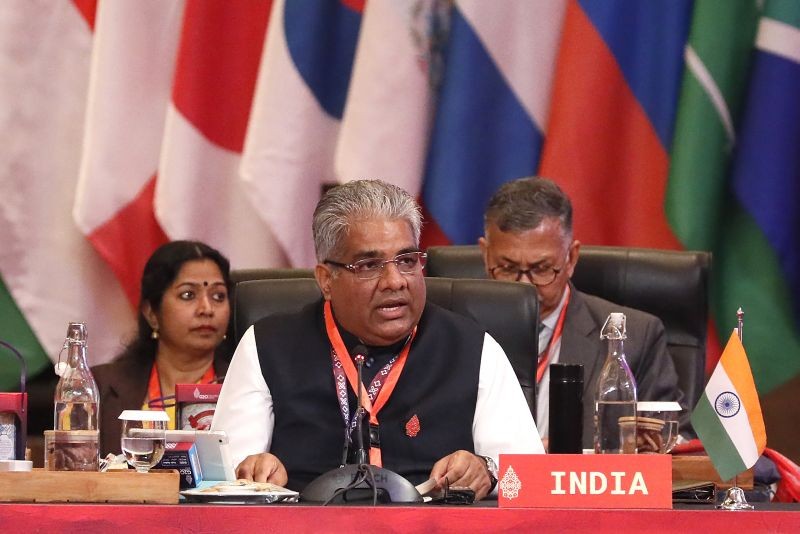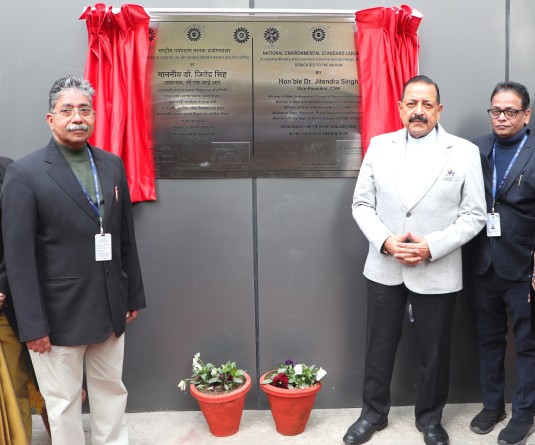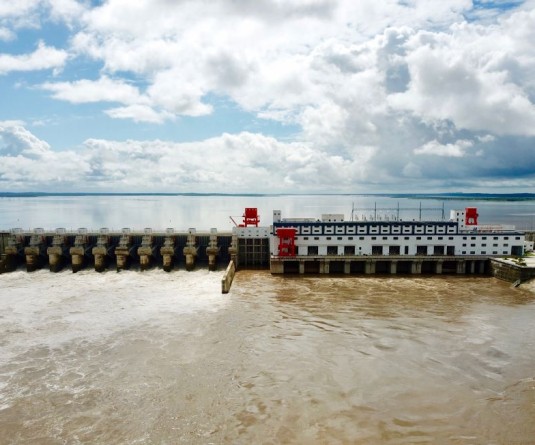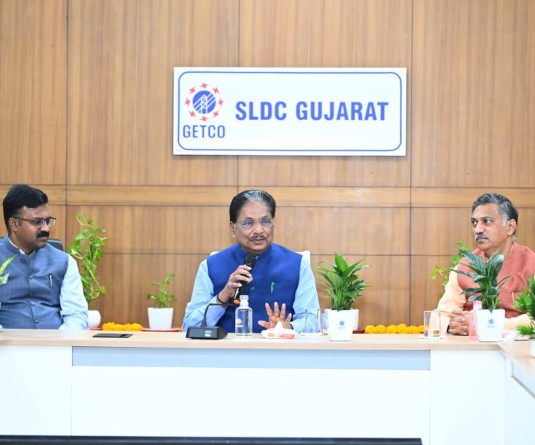Indian Union Minister for Environment, Forest and Climate Change Bhupender Yadav speaks at the G20 Environment and Climate Ministerial Meeting in Nusa Dua, Bali, Indonesia on August 31, 2022. (AP/PTI Photo)

New Delhi, August 31 (PTI): Union Environment Minister Bhupender Yadav on Wednesday said India is showing intent as a problem-solver despite not being a traditional contributor to global emissions.
Addressing the opening ceremony of the G20 environmental and climate ministerial meeting in Bali, Indonesia, he said the promise of climate finance from developed countries remains a mirage and its current pace and scale do not match the global aspiration to combat climate change.
Yadav also said the primary responsibility for the transition towards net-zero emissions rests with those who have historically accounted for most of the accumulated greenhouse gas concentrations in the atmosphere.
Net zero means achieving a balance between the greenhouse gases put into the atmosphere and those taken out.
"While India has not been a traditional contributor to global emissions, we are showing the intent in our actions to be a problem solver," he said.
"India believes that environmental sustainability can only be achieved through climate justice and equity in resource usage, technology, financing and low-carbon development timelines. Anything less is unacceptable," Yadav said.
The minister said India is committed to driving its low-carbon industry transitions through a multi-pronged approach that cuts across sectors and issues.
It has made remarkable progress in recent years in electrifying all households, rapidly increasing access to clean cooking energy and is also one of the world's largest markets for the deployment of renewable energy.
The country's National Green Hydrogen Mission promises to be a game-changer for reducing emissions from hard-to-abate sectors, he said.
"All these efforts need investment at lower costs and innovative models for scaling up climate finance to double 2019 levels by 2025. New approaches are also needed to develop and deploy low-carbon technologies," he said.
Yadav said the maximum impact of the climate crisis is being borne by the poorest countries and most vulnerable communities, which have contributed the least to the climate crisis and lack the technology, capacity and finance required to significantly alter the status quo.
"However, the promise of climate finance remains a mirage. An added problem is the clubbing of development finance with climate finance," he said.
In 2019, 70 per cent of the public climate finance was given out as loans instead of grants. In 2019-20, only six per cent of climate finance was in grants. This is pushing developing countries into more debt, the minister said.
"There is an urgent need to mobilise resources to stimulate the economy in a manner that makes it more resilient and sustainable. But the current pace and scale of climate finance from developed countries is not matching the global aspiration to combat climate change," Yadav said.
Any initiative to address contemporary environmental challenges should be based on equity and the principles of CBDR-RC, in the light of national circumstances and priorities, he said.
Such initiatives should also be country-driven and voluntary, as a one-size-fits-all approach will create more problems than solutions, the minister said.
CBDR-RC acknowledges the different capabilities and differing responsibilities of individual countries in addressing climate change.
He said the G20 members must hold a special responsibility towards the ocean, as they are all coastal countries and are cumulatively responsible for 45 per cent of the world's coastlines and over 21 per cent of exclusive economic zones.
The members of the G20 are Argentina, Australia, Brazil, Canada, China, France, Germany, India, Indonesia, Italy, Japan, Republic of Korea, Mexico, Russia, Saudi Arabia, South Africa, Turkey, the United Kingdom, the United States, and the European Union.
Yadav said India will assume the presidency of G20 from December 1 culminating in the G20 Summit in 2023.
"The potential priorities during our presidency for the Environment Deputies Meeting and Climate Sustainability Working Group may include promotion of the blue economy along with coastal sustainability; restoration of degraded lands and ecosystems; and promoting LIFE (Lifestyles for Environment) including sustainable consumption and production, resource efficiency and circular economy," he said.
Disclaimer: This story is auto-generated from news agency feeds and has not been edited by The Morung Express.
Source: PTI






